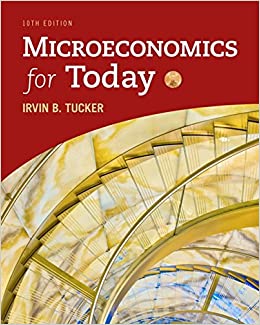Question
Suppose Joey received an additional $7,000 of income and he spends $5,600 of it.His MPC is _____. Question 1 options: 0.2 0.56 0.8 none of
Suppose Joey received an additional $7,000 of income and he spends $5,600 of it.His MPC is _____.
Question 1 options:
0.2
0.56
0.8
none of the above
Question 2(1 point)
In general, households with lower wealth tend to have a ____ MPC relative to wealthier households.
Question 2 options:
lower
higher
similar
exactly equivalent
Question 3(1 point)
If the MPC is 0.4, then the expenditure multiplier is _____.
Question 3 options:
1.4
2
2.5
none of the above
Question 4(1 point)
Suppose the MPC is 0.8.If the government increases spending by $10M, then GDP will _____ by _____.
Question 4 options:
increase; $10M
increase; $50M
decrease; $50M
none of the above
Question 5(1 point)
Suppose the MPC is 0.8.If the government decreases taxes by $10M, then GDP will _____ by _____.
Question 5 options:
increase; $8M
increase; $10M
increase; $40M
none of the above
Question 6(1 point)
Expansions are characterized by an unemployment rate _____ the natural rate.
Question 6 options:
greater than
equal to
less than
none of the above
Question 7(1 point)
During recessions, the demand for labor _____ and since wages are sticky, there is _____ for labor.
Question 7 options:
decreases: excess demand
decreases; excess supply
increases; excess demand
increases; excess supply
Question 8(1 point)
Suppose the economy is in long-run equilibrium and wealth increases.In the short-run, real GDP will _____ and the unemployment rate will _____ relative to their initial levels.
Question 8 options:
increase; decrease
decrease; decrease
not change; not change
not change; increase
Question 9(1 point)
Suppose the economy is in long-run equilibrium and wealth increases. In the short-run, the inflation rate will _____ relative to its initial level.
Question 9 options:
increase
decrease
not change
Question 10(1 point)
Suppose the economy is in long-run equilibrium and wealth increases.In the long-run, real GDP will _____ and the unemployment rate will _____ relative to their initial level.
Question 10 options:
decrease; decrease
decrease; increase
not change; not change
not change; increase
Question 11(1 point)
Suppose the economy is in long-run equilibrium and wealth increases. In the long-run, the inflation rate will _____ relative to its initial level.
Question 11 options:
increase
decrease
not change
Question 12(1 point)
Suppose an event occurs that results in a short-run effect of increasing the unemployment rate and increasing the inflation rate in the economy.This will occur as a result of which of the following?
Question 12 options:
Positive demand shock
Negative demand shock
Positive temporary supply shock
Negative temporary supply shock
Question 13(1 point)
Suppose an economy is in long-run equilibrium.Which of the following events will cause a recessionary gap? i. increase in taxes ii. increase in interest rates iii. increase in the expected price level iv. decrease in wealth
Question 13 options:
i only
iii only
i, ii and iv only
all of the above
none of the above
Question 14(1 point)
When the economy is in a recession, optimal fiscal policy to stabilize the business cycle would be to _____.
Question 14 options:
Increase aggregate demand
Decrease aggregate demand
Increase short-run aggregate supply
Decrease short-run aggregate supply
Question 15(1 point)
When the economy is in a recession and the government intervenes to stabilize the business cycle, which one of the following statements is true?
Question 15 options:
In the long-run, the inflation rate will be higher than it would otherwise be.
In the long-run, the inflation rate will be lower than it would otherwise be.
In the long-run, the unemployment rate will be higher than it would otherwise be.
In the long-run, the unemployment rate will be lower than it would otherwise be.
Question 16(1 point)
The process of deciding on and passing fiscal policy legislation creates:
Question 16 options:
an information lag.
a formulation lag.
an implementation lag.
a direction lag.
Question 17(1 point)
Suppose a government spends $500B and has tax revenue of $350B.In this case, the government has a _____.
Question 17 options:
budget deficit
budget surplus
trade deficit
trade surplus
Question 18(1 point)
The total amount of money that a government owes at a point in time is called:
Question 18 options:
a budget deficit.
a budget surplus.
the public debt.
a trade deficit.
Step by Step Solution
There are 3 Steps involved in it
Step: 1

Get Instant Access to Expert-Tailored Solutions
See step-by-step solutions with expert insights and AI powered tools for academic success
Step: 2

Step: 3

Ace Your Homework with AI
Get the answers you need in no time with our AI-driven, step-by-step assistance
Get Started


